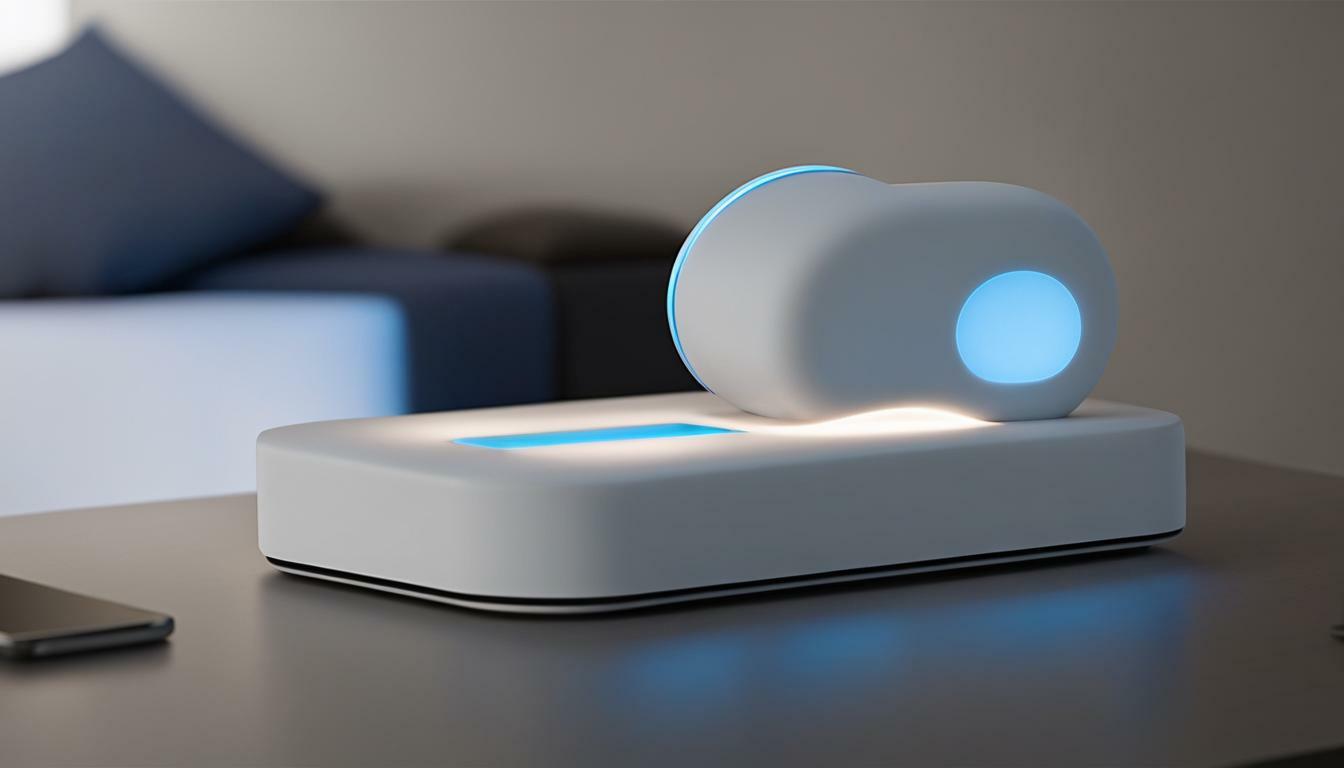Explore Top Sleep Data Analysis Tools Today

Sleep is an essential part of our daily routine, and getting a good night’s rest is crucial for our overall health and well-being. However, have you ever wondered how much you really know about your sleep? Today, we have access to a range of advanced sleep data analysis tools that can offer us a detailed look at our sleeping habits and quality.
These tools, such as sleep tracking software, sleep monitoring technology, and sleep data analytics, can help us visualize our sleep data, interpret the results, analyze our sleep patterns, and assess our sleep quality. And even better, they can be used to contribute to sleep research and advancements in the field.
Whether you’re struggling with sleep issues or simply curious about your sleep patterns, these sleep data analysis tools can provide valuable insights. In this article, we will explore the top sleep data analysis tools available today, how they work, and the benefits of using them for your overall well-being.
Key Takeaways:
- Sleep data analysis tools use sleep tracking software, sleep monitoring technology, and sleep data analytics to provide in-depth insights into your sleep patterns and quality.
- These tools can help you visualize your sleep data, interpret the results, analyze your sleep patterns, assess sleep quality, and even contribute to sleep research.
- Choosing the right sleep data analysis tool for your needs requires careful consideration of factors like sleep data interpretation, sleep pattern analysis, and sleep quality assessment.
- The benefits of using sleep data analysis tools include gaining a better understanding of your sleep patterns, identifying areas for improvement, and making informed decisions to enhance your overall sleep quality.
- To maximize the use of sleep data analysis tools, it’s important to follow best practices for data interpretation, effective sleep pattern analysis, and accurate sleep quality assessment.
Understanding Sleep Data Analysis Tools
Have you ever wondered how sleep tracking software and sleep data analytics work together to provide valuable insights into your sleep patterns and quality? In this section, we’ll explore the different components and functionalities of sleep data analysis tools, and their importance in sleep research.
How Sleep Tracking Software Works
Sleep tracking software is the foundation of sleep data analysis tools. It utilizes sleep tracking devices, such as wearable activity trackers and smartwatches, to monitor your movements during sleep and collect data on your sleep patterns. This data is then analyzed and visualized to provide insights into your sleep quality.
Sleep Data Analytics
Sleep data analytics is the process of analyzing the data collected by sleep tracking software. It involves interpreting the data and identifying patterns in your sleep behavior, such as the number of hours slept, the amount of deep sleep, and the number of times you wake up during the night. Sleep data analytics allows you to assess your overall sleep quality and identify areas for improvement.
Sleep Data Visualization
Sleep data visualization is the presentation of sleep data in a visual format, such as graphs and charts. This makes it easier to interpret and understand your sleep patterns. With sleep data visualization, you can quickly identify trends in your sleep behavior and track your progress over time.
Sleep Pattern Analysis
Sleep pattern analysis is the process of analyzing your sleep patterns to identify trends and patterns. It involves looking at factors such as the amount of time spent in each stage of sleep, the number of times you wake up during the night, and the consistency of your sleep schedule. Sleep pattern analysis can help you identify areas for improvement in your sleep habits.
Sleep Quality Assessment
Sleep quality assessment is the evaluation of the overall quality of your sleep. It involves looking at factors such as the length of time it takes you to fall asleep, the amount of time spent in each stage of sleep, and the number of times you wake up during the night. Sleep quality assessment allows you to assess your sleep habits and make informed decisions to improve your sleep quality.

Sleep data analysis tools are essential for sleep research as they provide valuable insights into sleep patterns and quality. Researchers use these tools to collect data on large groups of individuals, analyze the data, and identify trends and patterns in sleep behavior. This information is used to develop treatments and interventions for sleep disorders and other sleep-related issues.
Now that you have a better understanding of sleep data analysis tools, it’s time to explore how to choose the right tool for you. In the next section, we’ll provide tips on evaluating the features and functionalities of different sleep data analysis tools to help you make an informed decision.
Choosing the Right Sleep Data Analysis Tool for You
With so many sleep data analysis tools available, it can be overwhelming to choose the right one for your needs. Whether you’re looking to improve your sleep habits or contribute to sleep research, there are a few key factors to consider when evaluating different tools.
Features and Functionalities
One of the first things to look for in a sleep data analysis tool is its features and functionalities. Sleep tracking software, sleep monitoring technology, and sleep data interpretation are essential components to consider. Some tools may also offer additional features such as sleep pattern analysis, sleep quality assessment, and integration with other health and wellness apps.

It’s important to choose a sleep data analysis tool that is accurate and reliable. The tool should be able to measure and track your sleep data consistently over time, without any significant deviations or errors. Look for tools that have been scientifically validated or have positive user reviews.
User-Friendliness
The tool’s user interface should be easy to use and understand. It should also be customizable, allowing you to personalize your sleep data analysis experience. Some tools may offer supportive resources such as tutorials, user forums, or customer service to help you navigate the tool effectively.
Cost and Accessibility
The cost and accessibility of a sleep data analysis tool are also important factors to consider. Some tools may offer a free or lower cost version with limited features, while others may require a subscription or one-time fee. Additionally, consider whether the tool is available on multiple devices, such as your smartphone or tablet, for maximum accessibility.
By evaluating these factors and doing your research, you can choose the sleep data analysis tool that best fits your needs and goals. Remember, investing in a high-quality sleep data analysis tool is an investment in your overall health and well-being!
The Benefits of Sleep Data Analysis Tools
Utilizing sleep data analysis tools can have a profound impact on our overall well-being and quality of life. These tools, such as sleep tracking software and sleep tracking devices, allow us to gain important insights into our sleep patterns and quality, which can then be used to make informed decisions to improve our sleep habits and contribute to ongoing sleep research.
Improved Understanding of Sleep Patterns
Sleep data analysis tools provide a wealth of information about our sleep patterns, including when we fall asleep, how long we stay asleep, and how often we wake up during the night. By visualizing this data through sleep data visualization tools, we can identify patterns and trends that may be impacting our sleep quality. This understanding can then be used to make changes to our sleep habits and improve our overall rest.

With the help of sleep data analysis tools, we can identify specific areas for improvement in our sleep habits. For example, if we are consistently waking up several times during the night, we may need to adjust our sleep environment or address underlying health issues. Similarly, if we are consistently falling asleep much later than we intend to, we may need to make changes to our daily routine or take steps to reduce stress and anxiety.
Contribution to Sleep Research
The use of sleep data analysis tools also contributes to ongoing sleep research. By collecting and analyzing data from individuals around the world, researchers can gain a better understanding of sleep patterns and quality on a larger scale. This can lead to new insights and advancements in the field of sleep research, which can ultimately benefit us all.
In conclusion, sleep data analysis tools offer numerous benefits for our overall well-being and the advancement of sleep research. By utilizing these tools, we can gain a better understanding of our sleep patterns, identify areas for improvement, and contribute to ongoing research. Start exploring the world of sleep data analysis tools today and take the first step towards better sleep!
Tips for Maximising the Use of Sleep Data Analysis Tools
While sleep data analysis tools can provide valuable insights into your sleep patterns and quality, it’s important to know how to use them effectively to reap the benefits. Here are some tips for maximising the use of sleep data analysis tools:
1. Consistency is Key
For accurate results, it’s crucial to use your sleep tracking device consistently. Try to wear it every night and keep the device charged to avoid disruptions in data collection.
2. Interpret Your Data
When reviewing your sleep data, pay attention not only to the quantity of sleep, but also the quality. Look for patterns in your sleep stages, interruptions, and overall sleep quality.
3. Use Sleep Pattern Analysis to Your Advantage
Identify patterns in your sleep data and use this information to make informed decisions about your sleep habits. For example, if you notice that you have difficulty falling asleep on certain nights, consider implementing a relaxing bedtime routine to prepare your mind and body for sleep.
4. Assess Your Sleep Quality
Your sleep data analysis tool may provide a sleep quality score or metrics such as heart rate variability. Use this information to assess the quality of your sleep and track progress over time.
5. Combine Sleep Analysis with Other Healthy Habits
Remember, sleep analysis is just one aspect of overall health and wellness. Combine the insights gained from your sleep data with other healthy habits such as regular exercise and a balanced diet for optimal results.

By following these tips, you can maximize the use of your sleep data analysis tools to improve your sleep habits and ultimately lead a healthier life.
Conclusion
As we conclude our exploration of sleep data analysis tools, we cannot emphasize enough the importance of these tools for a healthy sleep routine. By utilizing the power of sleep tracking software, sleep monitoring technology, and sleep data analytics, we can gain a deeper understanding of our sleep patterns and take actionable steps to improve our sleep quality.
Empower Yourself
Choosing the right sleep data analysis tools is the first step towards a more restful and rejuvenating sleep. With so many options available, it can be overwhelming to decide on the right tool for you. But fear not, armed with the knowledge gained in this article, you can confidently choose the tool that best fits your needs.
A Healthier Future
The benefits of using sleep data analysis tools are manifold. From understanding your sleep patterns to making informed decisions about your sleep habits, these tools have the potential to revolutionize the way we approach sleep. Moreover, by contributing to ongoing sleep research, we can collectively work towards a healthier future.
Take Action Now
Don’t wait any longer to take your sleep routine to the next level. By incorporating sleep data analysis tools into your routine, you can gain valuable insights into your sleep patterns and make informed decisions for a healthier, happier, more energized you. So what are you waiting for? Start exploring the top sleep data analysis tools today and take the first step towards better sleep!
FAQ
How do sleep data analysis tools work?
Sleep data analysis tools utilize sleep tracking software and sleep monitoring technology to collect data on your sleep patterns. This data is then analyzed using algorithms and advanced analytics techniques to provide insights into your sleep quality, duration, and sleep stages.
Can sleep data analysis tools help improve my sleep?
Yes, sleep data analysis tools can help you understand your sleep patterns and identify areas for improvement. By analyzing your sleep data, you can make informed decisions to enhance your sleep habits, optimize your sleep environment, and improve your overall sleep quality.
Do sleep data analysis tools contribute to sleep research?
Absolutely! Sleep data analysis tools play a crucial role in sleep research. By allowing individuals to contribute their sleep data to larger databases, researchers can gain valuable insights into sleep patterns on a broader scale. This data contributes to advancements in the field and helps scientists better understand sleep and its impact on health and well-being.
Are sleep data analysis tools only for individuals with sleep disorders?
No, sleep data analysis tools can benefit individuals with and without sleep disorders. They provide valuable information about sleep quality, duration, and patterns that anyone can use to improve their sleep habits and overall well-being. Whether you have specific sleep concerns or simply want to optimize your sleep routine, these tools can be beneficial.
Can sleep data analysis tools be used with any sleep tracking device?
Sleep data analysis tools are designed to be compatible with a wide range of sleep tracking devices. Whether you use a smartwatch, fitness tracker, or dedicated sleep monitoring device, these tools can import and analyze the sleep data recorded by your device to provide valuable insights into your sleep patterns.
